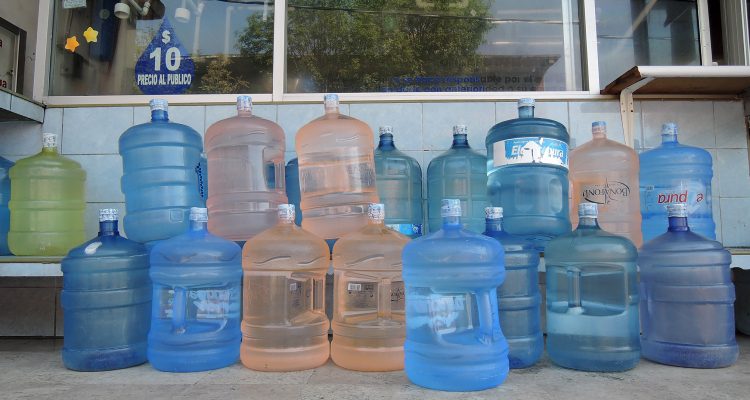I am happy to announce the publication of my new book: Schwarz, A. (2017): Demanding Water. A Sociospatial Approach to Domestic Water Use in Mexico City. Megacities and Global Change, Vol. 22. Stuttgart: Steiner.
Abstract
In the essentially water-rich basin of Mexico City, water taps are now installed in most homes. Yet in many of the city’s poorer neighborhoods in particular, water is supplied intermittently and taps often remain dry. How does such a socially constructed water scarcity affect water-related everyday practices in the home? And, more in general, what is the relation between urban space and domestic water use? In accordance with these questions, the present study aims to explore how people’s everyday practices are linked to urban space, understood as a social product always in the making. A sociospatial approach is employed, setting Pierre Bourdieu’s Theory of Practice in conversation with a relational understanding of space. Rather than identifying a ‘habitus of water use’, this involves a reflection on the implications of Bourdieu’s famous statement that the habitus makes the habitat. The research design is based on empirical fieldwork involving a set of qualitative methods. As it is assumed that both past and current water supply conditions in the home are key parameters for domestic practices of water use, the sphere of the dwelling lies in the focus. Taking subjective experiences and everyday practices as a starting point, it primarily draws upon in-depth interviews, conducted at the interviewee’s home to allow for a simultaneous participatory observation. A total of 53 residents from several neighborhoods in two different boroughs within the jurisdiction of the Federal District, Mexico City, were interviewed to provide a range of different urban living conditions. Through the newly developed tool of habitat biographies capturing people’s past dwelling experiences, the interviews also adopt a historical perspective. Focus group discussions and other empirical methods complete the picture, tackling practices of domestic water use with respect to questions of materiality, knowledge and meaning.
This book demonstrates how using water can turn into a demanding everyday task even in cities where virtually all dwellings do have water taps. It sheds a light on everyday practices of water use in Mexico City in the realms of drinking, personal hygiene, and domestic storage, and their relation to past and current supply conditions. Across all these sets of practices, influential urban imaginations with respect to the logic of urban water supply and a widespread mistrust in the potability of tap water are at play, and marked differences arise between waters used for body-related and more technical purposes. Other than expected, current water supply conditions seem to influence much stronger on domestic practices of water use than people’s past experiences. Keeping water in domestic storage tanks, waiting for water provision to resume, reusing domestic grey water, and the ubiquitous consumption of bottled water have all become essential everyday practices in Mexico City amidst unequal and often unreliable patterns of water supply reinforced by processes of neoliberal urbanization and infrastructural unbundling. Women in poorer parts of the metropolis are the ones bearing the brunt of such exclusionary configurations of urban space. Serving as a reminder that a water tap in the home alone does not guarantee proper access to water, the present book develops a sociospatial, subject-based approach to explore everyday practices and experiences in the realm of water. Such an approach is relevant beyond the example of Mexico City presented here, as a permanent water supply of a potable quality remains the exception rather than the rule in many cities around the world.
ORDER your copy directly from Franz Steiner Verlag from August 22, 2017 (paperback/ebook).
